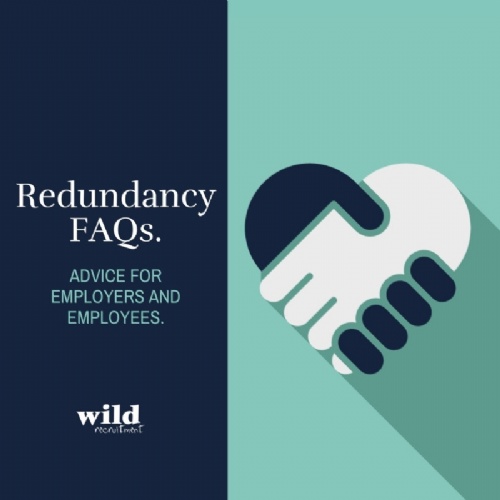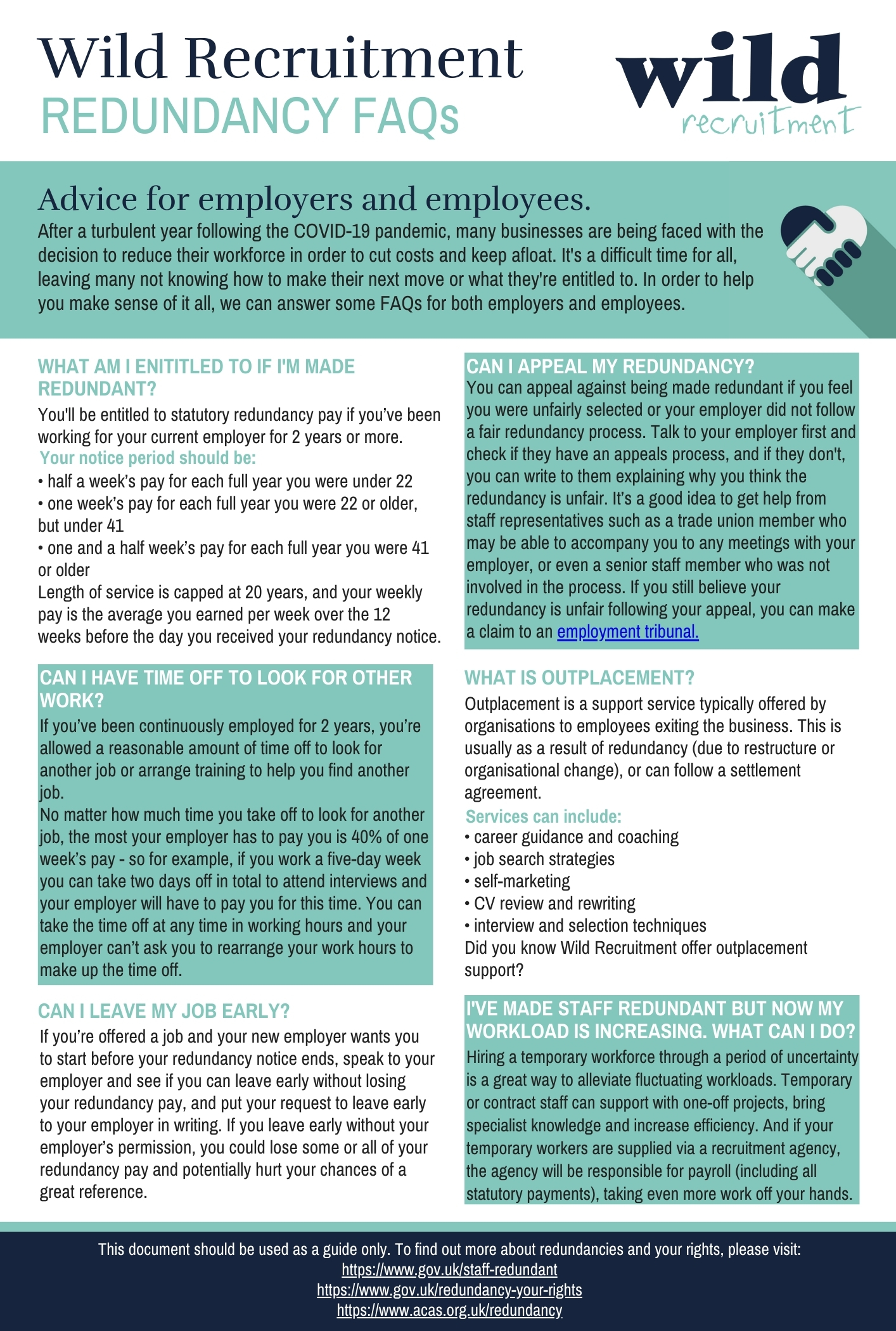Redundancy FAQs

After turbulent times following the COVID-19 pandemic, many businesses have sadly had to make the decision to reduce their workforce in order to cut costs and keep afloat.
Being faced with redundancy can leave you unsure of how to make your next move or what you're entitled to. In order to help you make sense of it all, we can answer some FAQs for both employers and employees.
WHAT AM I ENTITLED TO IF I'M MADE REDUNDANT?
You'll be entitled to statutory redundancy pay if you’ve been working for your current employer for 2 years or more.
Your notice period should be:
• half a week’s pay for each full year you were under 22
• one week’s pay for each full year you were 22 or older, but under 41
• one and a half week’s pay for each full year you were 41 or older
Length of service is capped at 20 years, and your weekly pay is the average you earned per week over the 12 weeks before the day you received your redundancy notice.
CAN I HAVE TIME OFF TO LOOK FOR OTHER WORK?
If you’ve been continuously employed for 2 years, you’re allowed a reasonable amount of time off to look for another job or arrange training to help you find another job.
No matter how much time you take off to look for another job, the most your employer has to pay you is 40% of one week’s pay - so for example, if you work a five-day week you can take two days off in total to attend interviews and your employer will have to pay you for this time. You can take the time off at any time in working hours and your employer can’t ask you to rearrange your work hours to make up the time off.
CAN I LEAVE MY JOB EARLY?
If you’re offered a job and your new employer wants you to start before your redundancy notice ends, speak to your employer and see if you can leave early without losing your redundancy pay, and put your request to leave early to your employer in writing. If you leave early without your employer’s permission, you could lose some or all of your redundancy pay and potentially hurt your chances of a great reference.
CAN I APPEAL MY REDUNDANCY?
You can appeal against being made redundant if you feel you were unfairly selected or your employer did not follow a fair redundancy process. Talk to your employer first and check if they have an appeals process, and if they don't, you can write to them explaining why you think the redundancy is unfair. It’s a good idea to get help from staff representatives such as a trade union member who may be able to accompany you to any meetings with your employer, or even a senior staff member who was not involved in the process. If you still believe your redundancy is unfair following your appeal, you can make a claim to an employment tribunal.
WHAT IS OUTPLACEMENT?
Outplacement is a support service typically offered by organisations to employees exiting the business. This is usually as a result of redundancy (due to restructure or organisational change), or can follow a settlement agreement.
Services can include:
• career guidance and coaching
• job search strategies
• self-marketing
• CV review and rewriting
• interview and selection techniques
Did you know Wild Recruitment offer outplacement support?
I'VE MADE STAFF REDUNDANT BUT NOW MY WORKLOAD IS INCREASING. WHAT CAN I DO?
Hiring a temporary workforce through a period of uncertainty is a great way to alleviate fluctuating workloads. Temporary or contract staff can support with one-off projects, bring specialist knowledge and increase efficiency. And if your temporary workers are supplied via a recruitment agency, the agency will be responsible for payroll (including all statutory payments), taking even more work off your hands.
DOWNLOAD THE FREE PDF HERE.
This document should be used as a guide only. To find out more about redundancies and your rights, please visit:


